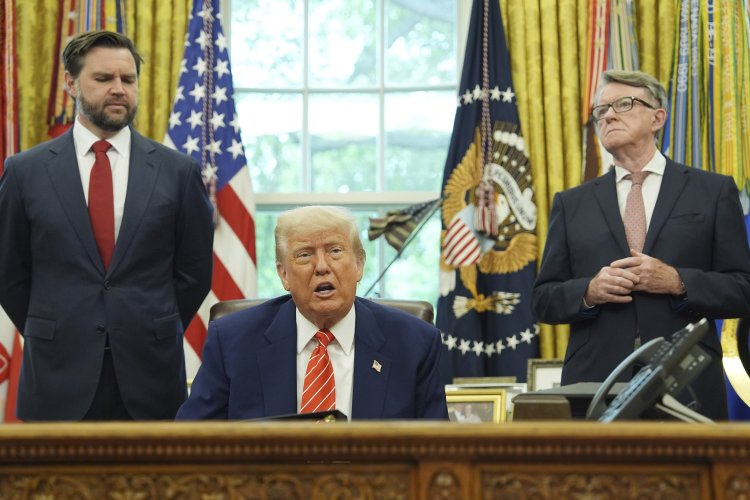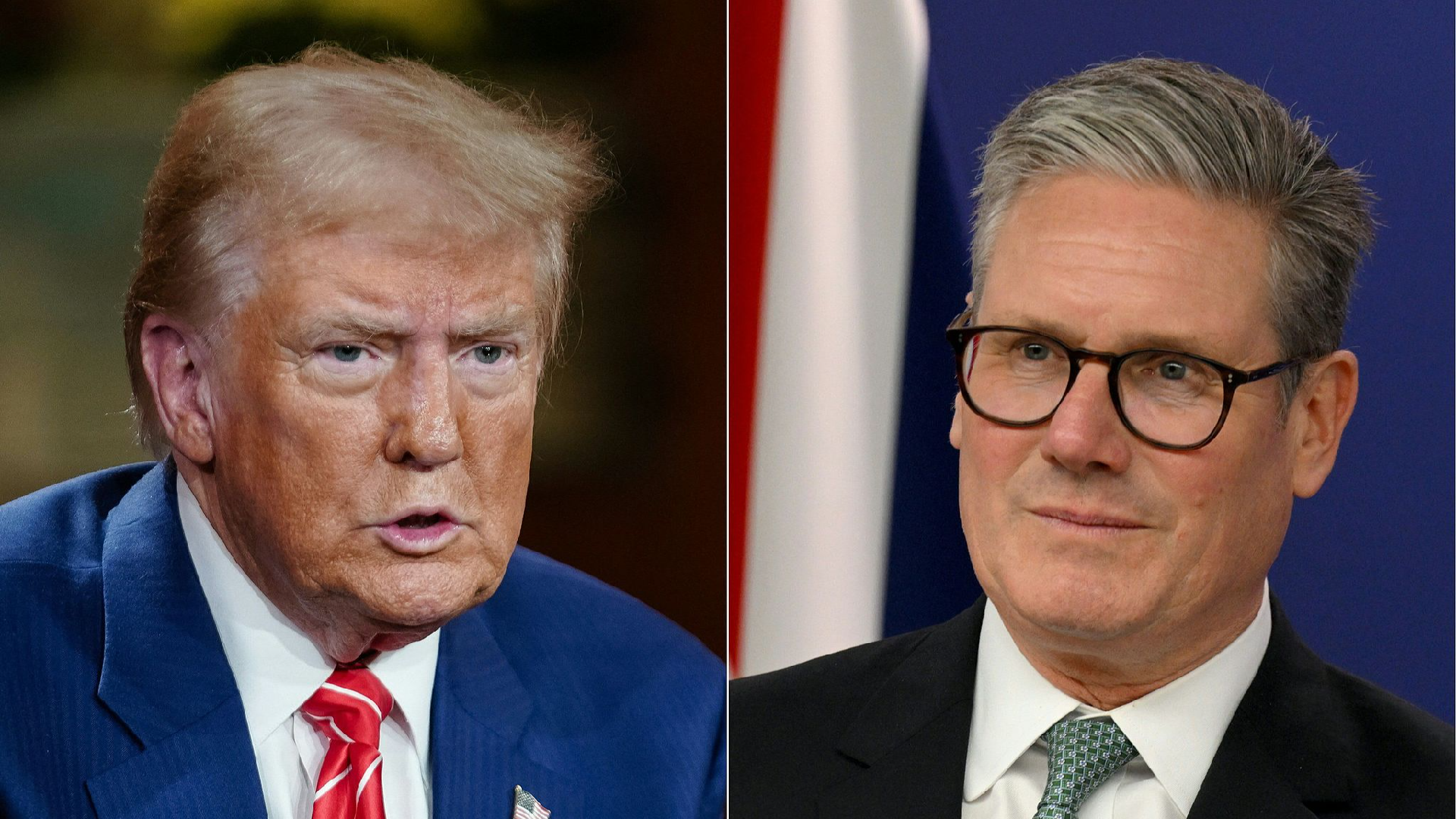Skepticism About Trump Overshadows Forthcoming US-UK Trade Agreement
The U.S.-U.K. trade deal presents an opportunity for numerous agreements, but a recent PMG-Public First poll reveals significant skepticism among American and British adults regarding Trump's dedication to the initiative.

A recent PMG-Public First poll indicated that while a substantial majority of people in both nations support reaching a trade agreement, fewer than one-third of respondents in the U.K. and 44 percent of Americans believe that Trump would adhere to such a deal. Alarmingly, nearly half of Americans—including 25 percent of his own supporters—identified Trump's unpredictability as the primary obstacle to effective negotiations.
This poll highlights how Trump's erratic approach to tariffs has undermined the credibility of the United States on the global stage, signaling to the White House that its aggressive tactics may be nudging long-term allies closer to its largest economic competitor, China.
The deal with the U.K. is expected to be one of the more straightforward agreements that the Trump administration aims to finalize by July 8. Announced last Thursday, the deal promises to reduce tariffs on British-manufactured vehicles, aircraft components, steel, and aluminum, while facilitating easier access for American agricultural goods, ethanol, and machinery into the British market. However, it also sidesteps some of the more contentious trade topics that have emerged between the two nations and is established with a partner that has been seeking such an agreement since Trump's first term.
According to the PMG-Public First survey, nearly half of Americans view the U.K. as the most crucial ally, though only 20 percent regard it as the primary nation for a beneficial trade agreement. Notably, Americans were largely unconcerned with the specific terms of the deal as long as it didn’t create new tariffs, thus providing the administration some leeway in negotiations.
Despite Trump celebrating this latest initiative, the poll signals troubling signs regarding how his tariff practices are affecting the U.S. reputation both domestically and internationally. A plurality of 42 percent of British respondents believe that China would be a more dependable trading partner than the United States, with many citing Trump's unpredictability as a major impediment to any agreements. This perception was particularly prevalent among younger voters, raising concerns about the future international standing of the U.S.; a majority of U.K. citizens under 34 see China as the more reliable partner.
“China is looking a lot better these days, given that they’re not unilaterally and without provocation lashing out at even folks they thought were their closest allies and trading partners,” remarked Scott Lincicome, vice president of general economics at the libertarian-leaning Cato Institute.
While news of a U.S.-U.K. trade agreement is likely to be positively received by the public in both countries, the poll found a significant degree of skepticism surrounding Trump's commitment to honoring the accord. In fact, 47 percent of Americans view his unpredictability as the foremost barrier to successful negotiations, while 42 percent expressed doubt that Trump would uphold a trade deal.
The poll also reveals that the administration hasn't effectively communicated its tariff strategy or broader trade policies to the American public. Only 34 percent of U.S. respondents supported Trump's decision to impose tariffs on other nations. Among independents, only 25 percent were in favor of raising tariffs, with 48 percent opposed.
Despite Trump's aggressive tariff approach targeting nearly every country, some of the most severe measures have been directed at key allies like the European Union and Canada. His combative style has been accompanied by steep tariffs on essential manufacturing sectors, alongside threats of sweeping global tariffs of up to 50 percent on important Asian economies that are crucial to U.S. efforts to curtail China's influence.
While Trump has temporarily suspended the most drastic tariffs for 90 days, critics have warned that his erratic trade strategy will push allies towards China—a trend underscored by recent polling data.
China has initiated a charm offensive aimed at presenting itself as a more stable trading partner amid the chaos of Trump's fluctuating agreements. Following the unveiling of Trump's extensive tariff policies on April 2, Chinese President Xi Jinping engaged with various Asian nations to explore economic partnerships and has also hinted at expanding trade ties with the European Union.
Despite escalating economic rivalries, the intertwined nature of the U.S. and Chinese economies means that the ongoing trade war could inflict serious harm on the U.S. economy, potentially increasing the prices of goods such as cars, clothing, and toys while jeopardizing supply chains if the tariff tensions don’t ease soon.
Discussions between the U.S. and China are set to commence this weekend, but Treasury Secretary Scott Bessent has made it clear that the path forward remains complex and uncertain.
“There is a lot of quite reasonable uncertainty out there,” stated Ed Gresser, a former official with the Office of the U.S. Trade Representative, now at the Progressive Policy Institute, a left-leaning think tank. “And that’s having its effects.”
Camille Lefevre for TROIB News
Find more stories on Business, Economy and Finance in TROIB business












